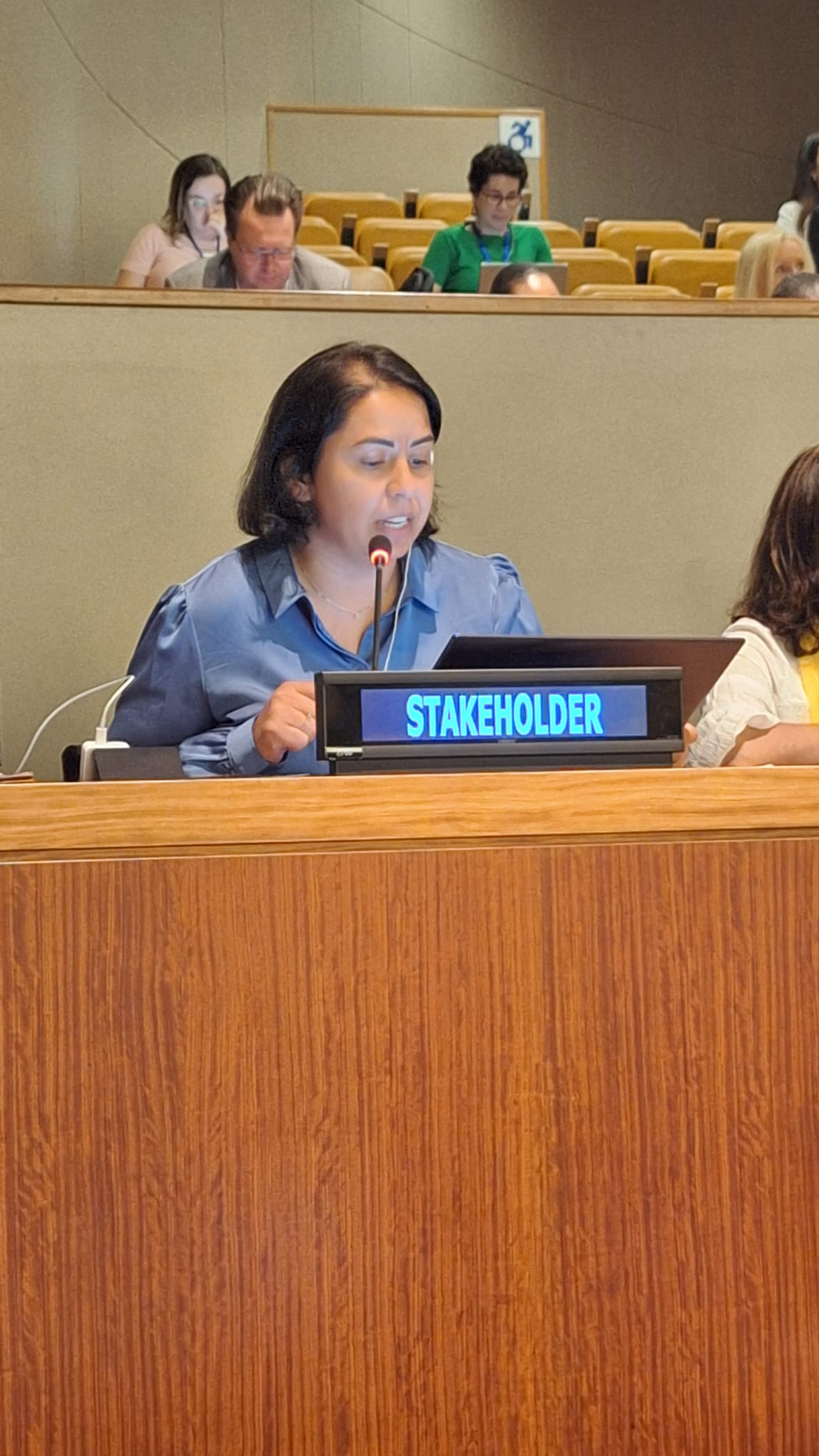When a Roma speaks at UN, the world listens: Interview with Roma academic-activist Simona Torotcoi
In July 2024, Simona Torotcoi addressed the High-level Political Forum on Sustainable Development, a subdivision of both the United Nations General Assembly and the United Nations Economic and Social Council, responsible for the entire organisation's policy on sustainable development. Simona, a Roma from Romania and currently working with the ERGO Network, is a part of the Communities Discriminated on Work and Descent (CDWD) and over the past fifteen years, she has dedicated herself to ensuring that not only are the Roma heard at a global stage, but that her voice also becomes a part of a stronger, united voice that speaks for CDWD living across the globe.
In a freewheeling conversation with GFoD, Torotcoi talked in detail about her journey, starting in a small village in Romania, and how she learnt about her identity. Torotcoi recalls her childhood in Petris, a small village in Romania, where she grew up in a city which had a mixed population, but even there, the Roma lived ‘separately'. “Growing up, my grandfather was allocated a government quarter, which meant that I grew up with kids from several communities, but I remember that the Roma lived on the city outskirts,” Torotcoi said. But even when she was young, she says she distinctly remembered the festivals, the practices and the weddings among the Roma community. “I remember, even when I was young, I realised that there was something distinct about our practices and customs. The marriages, especially: our traditions were distinct from other people.”
However, she quickly realised that there was a ‘difference' between ‘us' and ‘them'. “Every once in a while, there would be something that would remind us that Roma were treated differently. “Whether it was the use of some kind of stereotypes or simply pointing out some kind of discriminatory behaviour, it dawned slowly on me that ‘I' was slightly different,” she added.
Torotcoi finished schooling and during her college days, she became more familiar about Roma, both politically and academically. However, the idea of advocating and/or fighting for Roma did not become a concrete reality until well after graduation. “After my graduation, I worked in a textile factory for a bit, but was encouraged to attend college for my higher studies,” she said, adding that affirmative action in the form of reservations for Roma helped her immensely. “I would say that once I joined my Bachelor's programme, I became a lot more aware about our struggles. In 2009, I co-founded Young Roma and we started classes for Romani language, helping other Roma students, etc,” she added.
A Racist Mayor
Simona acknowledged that had it not been the order of a racist mayor, her career could have panned out differently. “In 2011, the mayor of the town I was studying in ordered building a wall that would effectively relegate Roma population from the city, leaving them on the other side of the wall. He tried his best to act like this was done from a security purpose but he only furthered the idea that Roma were ‘trouble', Roma were responsible for all law and order problems. Fighting against such a racist order not only showed us how mainstream discrimination was against us, it also showed us that there was a very urgent need to unite and amplify our voices,” she added.
Since then, Torotcoi had one aim: to be heard and to be paid attention to.
The need for a Global Platform
Talking about the importance of a platform like the Global Forum on Discrimination, Torotcoi said, “First, we must realise that there are already several platforms at a local, national and even European Union level. However, they have not been able to achieve the desired results because of a variety of factors.” Talking about Romania, for example, Torotcoi pointed out how local leaders are prone to turning deaf ears to our demands. Whether it is a demand for better educational facilities, housing facilities, the demand for justice and equal treatment in the eyes of law, there are so many forms of discrimination faced by Roma, Torotcoi points out, adding that sometimes, only global platforms have the ‘power' to get the policymakers' ears. “When we speak from a platform like the UN via GFoD, there is no way we can be ignored or invisibilised. They have to pay attention to what the UN says, right?”
GFoD, of course, does not represent or advocate only for Romao, and that, according to Torotcoi, is a good thing because CDWD will be heard only when they speak as a united front and on a global scale. “We all have to learn from each other and feed off each other's lessons. Roma, for example, have extensive documentation on their condition; Dalits in India have strong political representation, CDWD in Africa are organising and uniting even though they neither have the political representation or even documentation. But we all learn from each other because only a united platform can help us get stronger. And GFoD is doing that.”
The Dream? Education, Access and Recognition
Torotcoi, who has a PhD, believes that the academic knowledge, combined with strong representation, can go a long way in how Romas are treated in society. This perhaps explains why, when asked about her dream, Torotcoi wasted almost no time. “My dream is to have a Roma University, so that students from our community have a place to study their amazing history, to connect with each other, and realise that they are as good as everyone else and equal to everyone else.”


